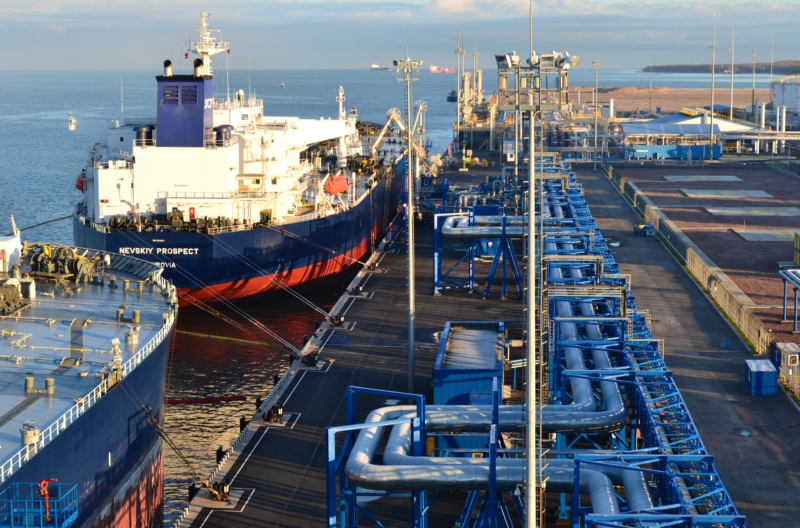The sanctioned crude oil tanker Nevskiy Prospect — part of Russia's “shadow fleet” — docked at an oil terminal in the port of Ust-Luga. Photo: Nevskaya Pipeline Company
Amid an emergency restructuring of logistics being carried out in response to U.S. sanctions, Russia’s seaborne crude oil exports have fallen to their lowest level in nearly three months, Kommersant reported, citing data from the Russian Center for Pricing Indices. According to the center, around 320,000 tons of oil were shipped daily from Russian ports during the week of Nov. 3-9 — the lowest level since mid-July, when the European Union introduced its 18th package of sanctions. That week, only 23 tankers departed Russian ports, compared to a previous weekly average of 26-28 vessels.
At the same time, shipping costs for Russian crude have continued to rise, increasing by roughly 3.7% over the previous week across nearly all major routes. The sharpest increases were seen on routes to Turkey, as shipowners began demanding additional premiums to offset risks linked to U.S. sanctions.
Russia’s two largest oil producers, Lukoil and Rosneft, were hit by U.S. sanctions on Oct. 22. Following the restrictions, which put foreign buyers at risk of secondary sanctions, some companies began refusing Russian oil. One of them was China’s Yanchang Petroleum.
In early November, Bloomberg reported that Chinese refiners had canceled a portion of their Russian oil shipments, cutting nearly half of Russia’s daily crude exports to China. In late October, several Chinese companies were also sanctioned by the EU and the UK for purchasing Russian oil.
After the U.S. announced sanctions, Indian buyers — the second-largest importers of Russian crude after China — began reviewing their contracts as well. However, India’s state-owned Indian Oil Corp later said it had resumed buying Russian oil, now sourcing it through intermediaries in order to bypass sanctions on Rosneft and Lukoil.
Another state-owned refiner, the Bharat Petroleum Corporation, also said it would purchase oil only from “non-sanctioned” suppliers. However, as one industry expert told The Insider, verifying the true origin of crude shipments is practically impossible, making such assurances largely symbolic.

